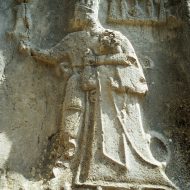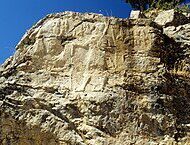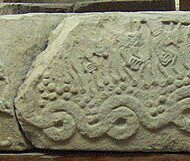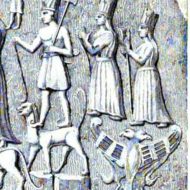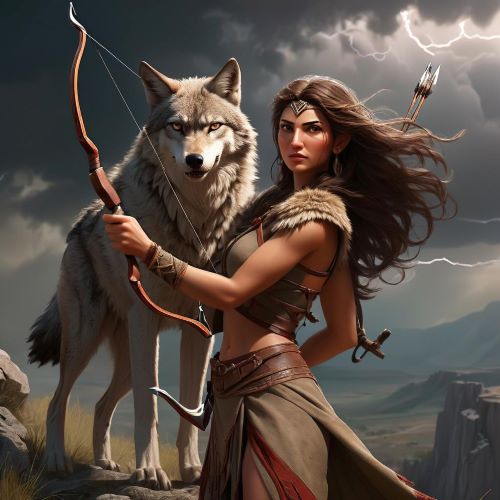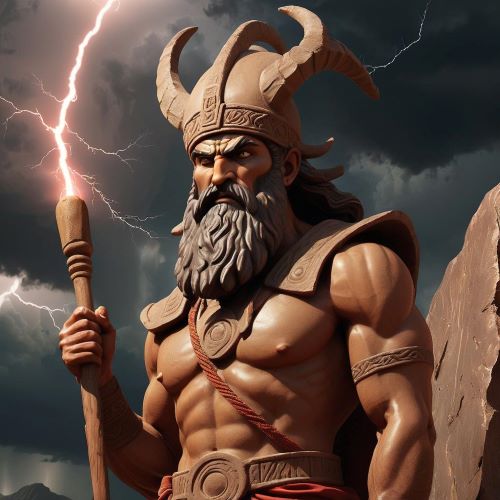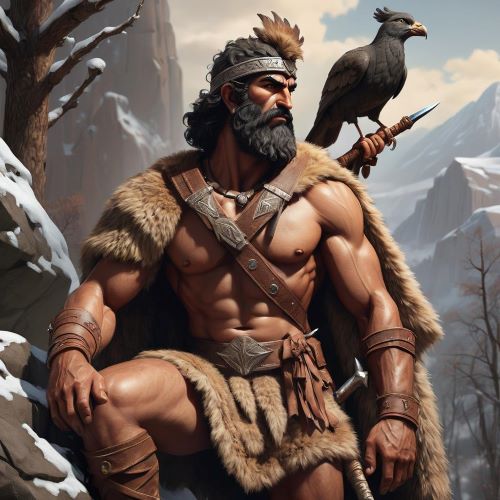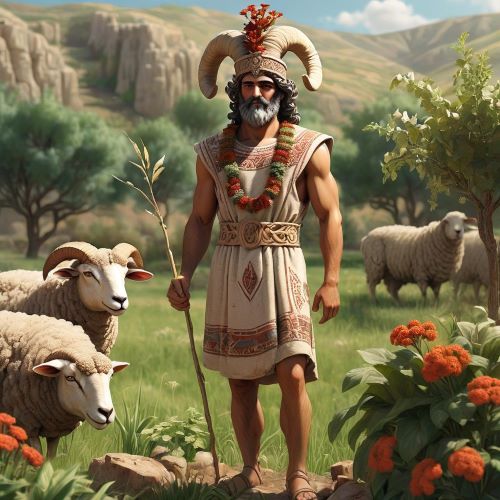Sarruma : The Mountain God
Listen
At a glance
| Description | |
|---|---|
| Origin | Hittite Mythology |
| Classification | Gods |
| Family Members | Teshub (Father), Hepat (Mother), Allanzu, Kunzišalli (Siblings) |
| Region | Turkey, Syria, Lebanon, Cyprus |
| Associated With | Mountains, Leopards |
Sarruma
Introduction
Sarruma, also spelled as Sharruma or Ṯarrumannu, is an ancient god who was originally worshiped by the Hurrians, a people who inhabited parts of Anatolia and northern Syria in the second millennium BCE. He was later adopted into the Hittite pantheon, a neighboring Indo-European civilization that ruled over most of Anatolia at its peak. Sarruma’s name means “king of the mountains” and he was associated with mountains, bulls, leopards and the moon.
Physical Traits
Sarruma could have been depicted in both theriomorphic and anthropomorphic forms. In the human version, he was depicted as a young man wearing pointed shoes and a tunic sometimes riding on the back of a leopard or holding a lance. In the animal form, he was depicted as either a bull or a bull-headed man. The winged sun disk was a common deity in the Near East.
Family
Sarruma’s origins are in the Hurrian city of Urkesh, where he was worshipped as a mountain god. He was also regarded as a son of Teshub and Hepat, the Hurrian storm god and sun goddess, and a messenger of Kumarbi, the former king of the gods who challenged Teshub for supremacy. Sarruma’s cult declined after the collapse of the Hittite Empire in the 12th century BC. However, his image and mythology continued to be used by later cultures in Anatolia. For example, the Phrygians adopted Sarruma as their god of war, and they called him Sandon.
Sarruma’s origins are obscure, but he seems to have been a prominent deity in the Hurrian religion, especially in the kingdom of Kizzuwatna, which was located in southeastern Anatolia and northern Syria. He had several cult centers in this region, such as Kummanni and Lawazantiya. He was also venerated in Aleppo, Emar and Ugarit, where he was sometimes identified with the local moon gods. One of the most famous depictions of Sarruma is found in Yazilikaya, a rock sanctuary near Hattusa that was used for religious ceremonies by the Hittite kings. On the east wall of Chamber B, there is a relief showing Sarruma embracing King Tudhaliya IV (r. c. 1237–1209 BCE), who ruled during the last decades of the Hittite empire.
Other names
Sarruma, also romanized as Sarrumma or Sharruma was also vocalized as Ṯarrumannu. He was also invoked in some personal names that survived until the first millennium BCE and even into the Hellenistic period (323–31 BCE) in Cilicia and Lycia. Some examples are Sandasarme, Wassurme, Urhisarma and Sarmaos
Powers and Abilities
When the Hittites subjugated the kingdom of Mitanni in 14 BC, they made Sarruma a part of their pantheon. They had named him Huwasi, their god of mountains. The Hittites regarded him as a protector of their empire and king. He was also associated with Tarhunt, their god of thunder. In one image, he was riding on a bull.
The Hittite Empire was home to a widespread cult of Sarruma, who was known for his temples, which were erected on mountaintops. His priests performed rituals to protect the king and ensure that the land fertility. He was also a popular deity among the Hittite soldiers. The cult of Sarruma declined following the Hittite Empire’s collapse during the 12th century BC. But, his mythology and image were still used by other cultures in Anatolia. For instance, the Phrygians named him Sandon, and they worshipped him as the god of war.
Modern Day Influence
Sarruma is a fascinating figure in Hittite mythology. He was a god of many different aspects, including mountains, protection, warfare, and intercession. He was also a popular god among the Hittites, and his cult was widespread throughout the empire. Sarruma’s image and mythology continued to be used by later cultures in Anatolia, and he remains a significant figure in the study of ancient Near Eastern religion.
The song “Sarruma’s Song” by Led Zeppelin was inspired by the god’s association with leopards and mountains. A video game called “Sarruma: The Mountain King” features a bull-headed warrior who can fight against enemies led by Kumarbi. In the Marvel Comics universe, Sarruma is the son of Sif and Thor. In addition to being able to manipulate electricity and weather, Sarruma has extraordinary agility, strength, and durability. A historical fiction novel called Saruma’s Legacy follows the story of a descendant of the king who inherits his powers. He uses them to restore the Hittite empire’s glory and face various threats.
Related Images
Frequently Asked Questions
What is lorem Ipsum?
I am text block. Click edit button to change this text. Lorem ipsum dolor sit amet, consectetur adipiscing elit. Ut elit tellus, luctus nec ullamcorper mattis, pulvinar dapibus leo.
What is lorem Ipsum?
I am text block. Click edit button to change this text. Lorem ipsum dolor sit amet, consectetur adipiscing elit. Ut elit tellus, luctus nec ullamcorper mattis, pulvinar dapibus leo.
What is lorem Ipsum?
I am text block. Click edit button to change this text. Lorem ipsum dolor sit amet, consectetur adipiscing elit. Ut elit tellus, luctus nec ullamcorper mattis, pulvinar dapibus leo.
What is lorem Ipsum?
I am text block. Click edit button to change this text. Lorem ipsum dolor sit amet, consectetur adipiscing elit. Ut elit tellus, luctus nec ullamcorper mattis, pulvinar dapibus leo.
What is lorem Ipsum?
I am text block. Click edit button to change this text. Lorem ipsum dolor sit amet, consectetur adipiscing elit. Ut elit tellus, luctus nec ullamcorper mattis, pulvinar dapibus leo.

